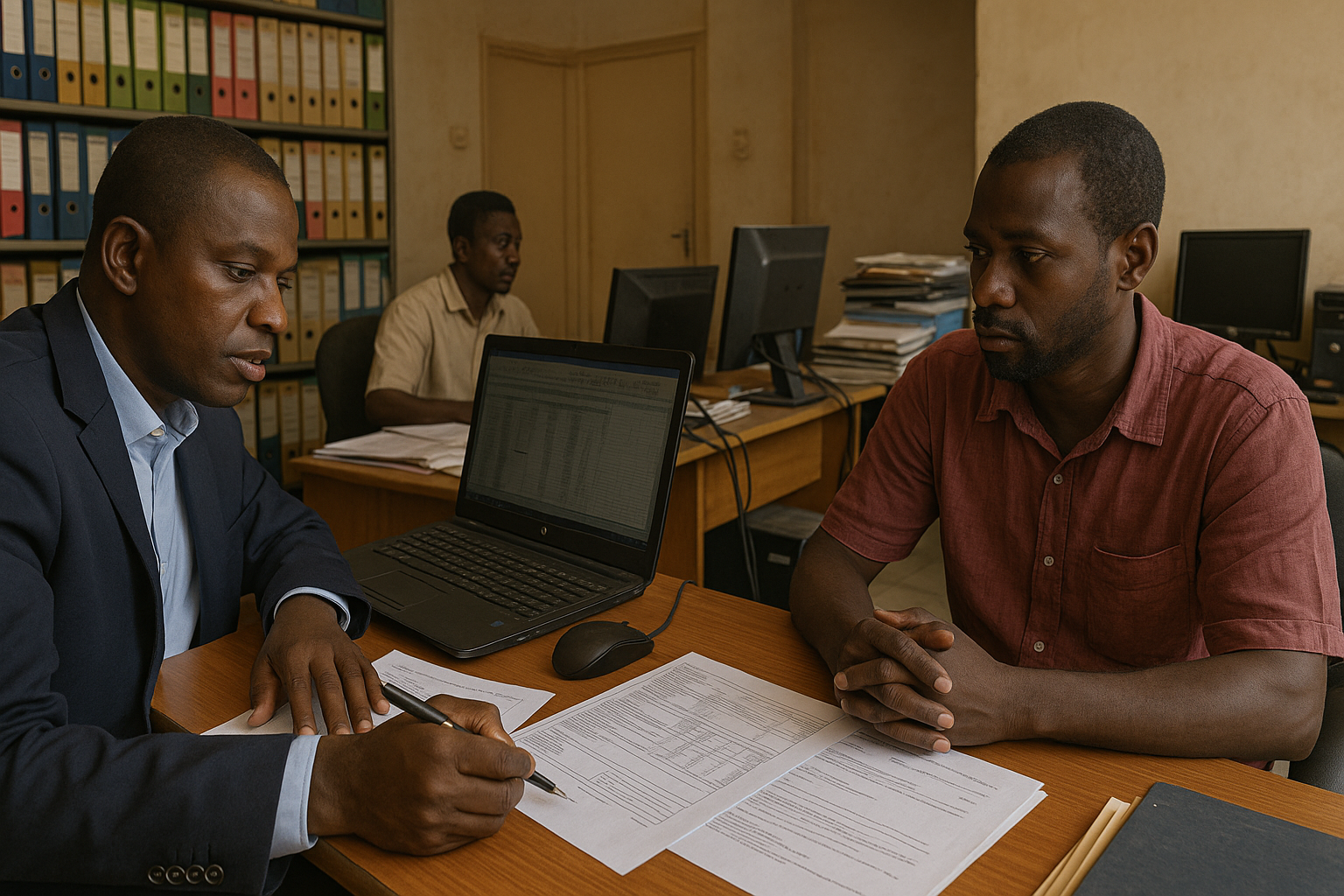Senegal experiment finds tax officials more effective than data-driven algorithms
A World Bank study testing algorithm-driven tax audit selection in Senegal found that human inspectors significantly outperformed machines, detecting far more evasion and conducting audits more effectively. The research highlights that in data-poor environments, bureaucrats’ expertise and judgment remain more reliable than algorithms.

In an era where algorithms are increasingly seen as the future of governance, a new study by the World Bank’s Development Research Group, in collaboration with Senegal’s tax administration, offers a striking reality check. The report by Pierre Jean Bachas, Anne Brockmeyer, Alipio Ferreira, and Bassirou Sarr, investigates whether data-driven tools can outperform human bureaucrats in the high-stakes task of tax enforcement. By embedding an algorithm directly into Senegal’s national audit program, the researchers tested whether machines could rival the experience and intuition of seasoned tax inspectors. What they found was not a victory for technology but a nuanced reminder of the limits of automation in data-poor settings.
A Bold Experiment in Tax Audits
The experiment was unprecedented in scale. Senegal’s annual tax audit program, which decides which firms should be examined for possible evasion, was divided evenly between human judgment and machine logic. Inspectors in one group relied on their traditional methods, guided by professional expertise and institutional memory. In the other, a transparent risk-scoring algorithm, trained on newly digitized tax return data, identified firms most likely to underreport. The assumption was straightforward: the algorithm would detect more fraud, cut costs, and reduce opportunities for corruption. Instead, results proved the opposite. Audits chosen by the algorithm were 18 percentage points less likely to be conducted. When they were carried out, they uncovered 89 percent less evasion than audits selected by inspectors. Rather than proving more efficient, the algorithmic approach was less cost-effective and showed no significant effect on corruption.
Why the Algorithm Failed to Deliver
The researchers delved into why a tool designed to boost efficiency faltered so badly. Three explanations stood out. First, tax inspectors brought tacit knowledge to the process, an intuitive understanding built from years of experience that allowed them to pick up signals invisible in limited data. Second, the very nature of tax evasion in Senegal made it difficult for an algorithm to capture. Evasion often thrives in informal transactions and personal networks, areas poorly reflected in digitized records. Third, the available data itself posed a limitation. Unlike advanced economies with extensive digital trails, Senegal’s records are patchy, leaving the algorithm with a weak foundation. Even when the researchers experimented with more sophisticated machine-learning models, improvements were marginal. The conclusion was clear: better code cannot overcome shallow data.
Lessons for the Global South
The findings reverberate far beyond Senegal. Across the developing world, governments are pouring resources into digital governance reforms, often with donor support. The narrative is seductive: automate decisions, minimize human discretion, and efficiency will follow. But the Senegal experiment suggests otherwise. Without rich data and supportive institutions, algorithms risk underperforming, or worse, undermining existing systems. Instead of replacing bureaucrats, algorithms may work better as complementary tools, highlighting patterns, suggesting priorities, and aiding human judgment rather than dictating it. For policymakers, the lesson is not to abandon digital reforms but to recalibrate expectations and invest in the data infrastructure needed to make algorithms effective.
The Enduring Value of Human Judgment
The study also challenges assumptions about corruption. Many advocates believe algorithms reduce rent-seeking by removing discretion. Yet in Senegal, inspectors often bypassed algorithm-selected cases, weakening enforcement. Discretion was not eliminated but reshaped, raising concerns that technology alone cannot fix incentive structures within bureaucracies. What emerges is a nuanced picture: human expertise remains indispensable, especially in complex, low-data environments. Experienced inspectors, with their ability to navigate subtle cues and local realities, still outperform machines. This does not mean algorithms are useless, but that their role must be carefully defined, as assistants, not substitutes. By emphasizing the need for hybrid systems that combine human judgment with technological support, the study points to a more sustainable model of reform.
A Pragmatic Future for Digital Governance
By grounding its conclusions in a real-world, large-scale trial, the study injects much-needed pragmatism into debates about artificial intelligence in public administration. It underscores that context matters: the richness of data, the nature of the task, and the institutional environment determine whether algorithms succeed or fail. In Senegal’s case, the bureaucrats, not the machines, proved to be the more effective guardians of the tax system. For governments in the Global South, the message is clear. Algorithms may hold transformative potential, but without investments in data systems, institutional alignment, and cultural change, they will not live up to their promise. The future of digital governance lies not in replacing people with machines, but in designing smarter partnerships between the two.
- FIRST PUBLISHED IN:
- Devdiscourse
ALSO READ
World Bank Projects Viet Nam’s Economy to Grow 6.6% in 2025 Amid Strong Start
World Bank VP Johannes Zutt Concludes Nepal Visit, Pledges $2.7B Support
Early Warnings Save Lives but Gaps Persist: World Bank Calls for Inclusive Systems
World Bank Reports Gambia’s Economy Grew 5.7% in 2024, Outlook Remains Strong









